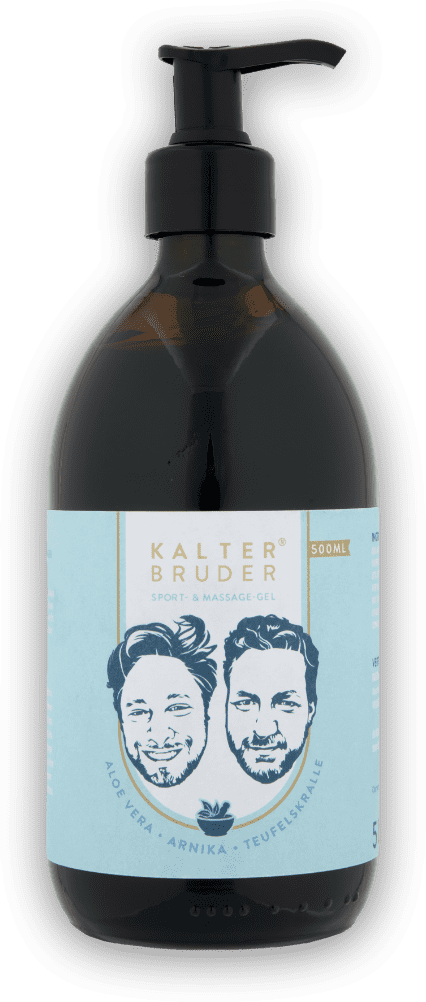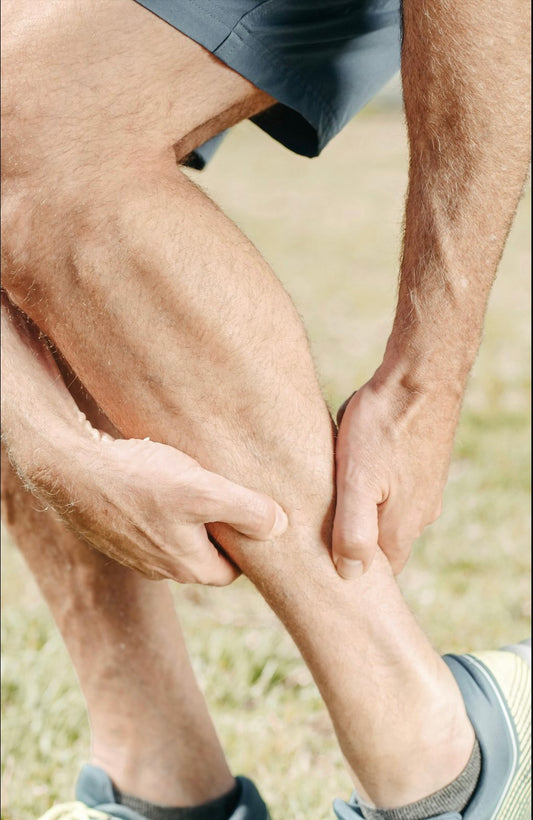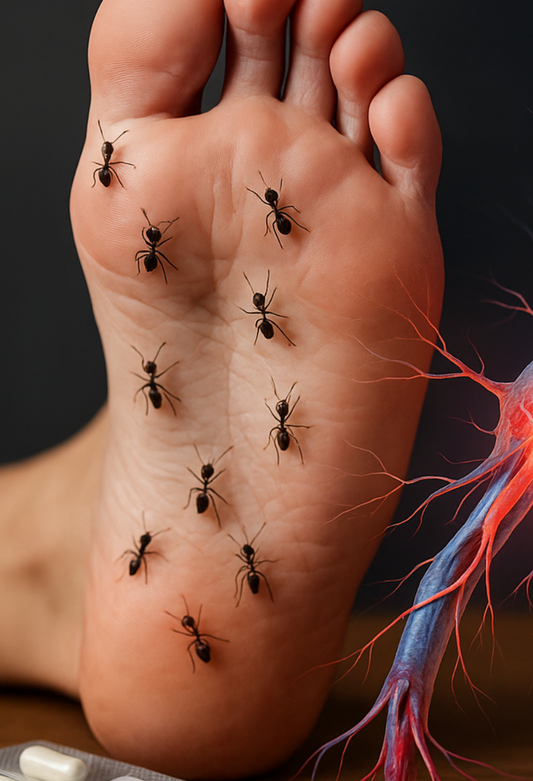Stress Management: Sustainable Methods for Mental and Physical Strengthening
Stress is a natural part of our lives that can motivate us to overcome challenges. But sometimes stress becomes a burden that overwhelms us mentally and physically. But sometimes stress becomes too much, and what was once a motivation becomes a burden that overwhelms us both mentally and physically. Chronic stress can have serious consequences, such as constant exhaustion, insomnia, or even serious cardiovascular disease. The good news, however, is that with sustainable techniques we can learn to reduce this stress and bring our lives back into balance.
This article shows you how you can fight stress using a combination of mental and physical methods. For your well-being and your health.
Why stress management is so important – "When stress becomes a burden"
Stress can not only be annoying, but can also turn out to be a real health risk factor in the long term. If the stress continues uninterrupted, the cortisol level in your body rises - a hormone that is responsible for the so-called "fight or flight" response. In the long term, however, high cortisol levels cause sleep problems, a weakened immune system and increased blood pressure.
Stress not only affects your body, but also your mind. The constant tension leads to a lack of concentration, irritability and even depression. If you don't do anything about it, the worst-case scenario is burnout - and burnout is often associated with serious illnesses such as high blood pressure or chronic pain.
A study by the American Psychological Association (APA) shows that 77% of people regularly experience stress symptoms. This is mainly due to the increasing demands of everyday life and work, constant availability and increasing social pressure. This clearly shows that managing stress is not a minor matter, but essential for our well-being.
Mindfulness and Meditation – "Back to the Here and Now"
One of the most effective ways to manage stress is mindfulness. It involves living in the here and now without worrying too much about the past or the future. When you are mindful, you focus on the present moment - for example, on your breathing or on the sounds around you. Even a short 5-minute breathing exercise can help you relax and clear your head. For example, you can use the 4-7-8 method: breathe in for 4 seconds, hold your breath for 7 seconds, and then breathe out slowly for 8 seconds.
Meditation is also an effective tool for finding inner peace. There are many different types of meditation: guided meditations where someone tells you what to focus on, or repeating mantras. The effect remains the same: your thoughts calm down, your cortisol levels drop, and you feel more balanced.
A 2019 meta-analysis showed that regular meditation can reduce stress levels by up to 38%. If that's not a reason to give it a try!
Exercise and sport – "Simply run away from stress"
Exercise is one of the best ways to combat stress. When you go jogging, cycling or swimming, your body releases endorphins - happiness hormones that relax you and make you happier at the same time. Aerobic activities that increase your heart rate are particularly good for reducing stress.
But it's not just intensive exercise that can help: gentle forms of exercise such as yoga and Pilates also combine relaxation with strengthening the body. Targeted exercises relieve tension, improve breathing and calm the mind.
The WHO states that regular exercise can reduce the risk of stress-related illnesses by 25%. So exercise is not only an outlet for stress, but also an investment in your health.
Relaxation techniques – "Small breaks, big impact"
Relaxation techniques are like little oases in everyday life - moments in which you can withdraw and recharge. A popular method is progressive muscle relaxation, in which you specifically tense and relax certain muscle groups. This leads to deep relaxation of the entire body.
Breathing techniques are another simple but effective way to relieve stress instantly. Deep abdominal breathing or the 4-7-8 method can help calm your pulse and release tension.
Autogenic training can also help you to relax. You use specific suggestions to put your body into a state of deep calm. For example, you can repeatedly say to yourself: 'My arms are very heavy' or 'My breathing is calm and regular' to promote relaxation. Or how about a soothing bath? Lavender or lemon balm as a bath additive can work wonders.
Stress management in everyday life – "Structure creates relief"
If you structure your everyday life better, you can often avoid stress in advance. Good time management is crucial: to-do lists help you keep track of things, and the Eisenhower Matrix can help you set priorities.
It is just as important to set boundaries and say "no" sometimes. Nobody can do everything - and that's completely okay. Digital breaks are also helpful: reduce your screen time and consciously take breaks from social media.
Last but not least, avoid negative self-talk and try to turn your inner critic into a supporter. Positive thoughts can help you cope better with stressful situations.
Nutrition and Stress – "Eating for More Peace"
Did you know that your diet can also have a big impact on your stress levels? There are foods that help reduce stress: nuts, whole grains, bananas and dark chocolate are rich in magnesium and tryptophan, which can have a calming effect.
Herbal teas such as chamomile, valerian or ashwagandha are known for their relaxing effects. It is equally important to avoid stimulants such as caffeine, sugar and alcohol, as they can increase stress levels.
A 2021 study showed that a magnesium-rich diet can significantly reduce stress levels, so it's worth making small changes to your diet to help you relax.
Social contacts and support – "Together against stress"
Together you are less alone - this also applies to dealing with stress. Talking to friends or family helps to put problems into perspective and get emotional support. Sometimes just having someone listening is enough to reduce stress levels.
Self-help groups can also be helpful for sharing experiences and gaining new perspectives. If the stress becomes too great, don't be afraid to seek professional help - be it in the form of coaching, counseling or therapy. You can find suitable specialists online, through health centers or recommendations from friends.
Comparison of methods – "Which technique suits you?"
To give you an overview of the different methods for managing stress, we have created a table that clearly shows you the most important techniques, their effects, the time required and the special features:
| method | Effect | Application | special features |
|---|---|---|---|
| meditation | Lowers cortisol levels, calms mind | 10-20 minutes daily | Many variations, from guided to mantra |
| visualizations/imaginations | Reduces anxiety and promotes positive emotions | 10 minutes, as needed | Effective for mental relaxation, requires imagination |
| progressive muscle relaxation | Relieves muscle tension | 10-15 minutes, as needed | Easy to learn for beginners |
| Nutrition | Reduces stress hormones | Daily | Foods like nuts and bananas |
| breathing techniques | Calms the nervous system, lowers the pulse | 5-10 minutes, as needed | Easy to learn, fast effect |
| autogenic training | Deep relaxation through self-suggestion | 10-20 minutes, 3 times a week | Ideal for sleep problems, requires some practice |
| yoga | combination of strengthening and relaxation | 30-60 minutes, 2-3 times a week | Flexibility and relaxation in one, supports breathing |
| nature walks | Reduces stress hormones, lifts mood | 20-30 minutes, regularly | Improves well-being, especially effective in green environments |
| music therapy | relaxation, mood improvement | 15-30 minutes, as needed | Good for calming down after a stressful day, easy to use |
Conclusion – "Small steps, big relaxation"
Sustainable stress management means using a combination of mental and physical approaches. The most important thing is regularity: even small changes in everyday life can make a big difference in the long term. Try different techniques to find out what works best for you - and remember: stress management is a process, not a race.
Start small, take the first step – and you will see how good it can do you.















